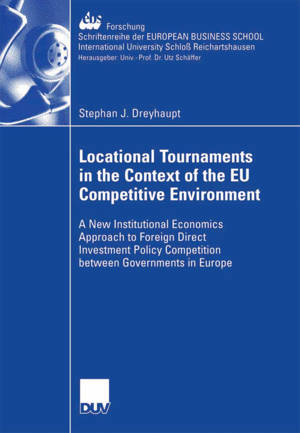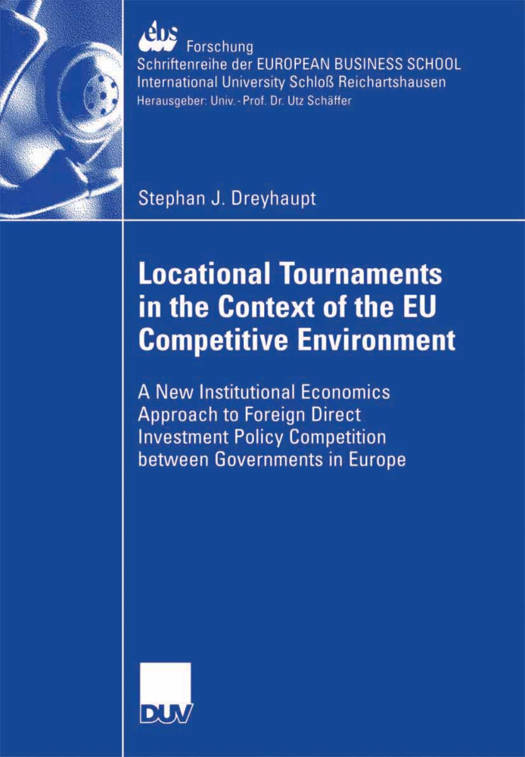
- Afhalen na 1 uur in een winkel met voorraad
- Gratis thuislevering in België vanaf € 30
- Ruim aanbod met 7 miljoen producten
- Afhalen na 1 uur in een winkel met voorraad
- Gratis thuislevering in België vanaf € 30
- Ruim aanbod met 7 miljoen producten
Zoeken
Locational Tournaments in the Context of the EU Competitive Environment
A New Institutional Economics Approach to Foreign Direct Investment Policy Competition Between Governments in Europe
Stephan Dreyhaupt
€ 52,95
+ 105 punten
Omschrijving
As part of the research undertaken by the Department of Economics at the European Business School, this book explores the role that institutions play in the process of economic competition between jurisdictions for mobile investment. These "locational tournaments" are perpetuated not simply by classical factor endowments of their respective locations, but also by government interventions that impact both market imperfections and FDI flows. The resulting rivalry between competing institutional arrangements, which has been termed institutional competition, lies at the very heart of the author's analysis. The context for his research is provided by the global forces of trade and foreign direct investment that have expanded the scope for international production due to widespread liberalization of trade and capital flows, continuing regional integration, rapid technological innovations, and the resulting decrease in cross-border transaction costs. Foreign direct investment has been markedly affected by these developments. Countries depend now more heavily on foreign direct investment as a major portion of international capital flows, giving even smaller countries a greater potential and determination to compete for FDI. As a result, not only have attitudes towards FDI dramatically changed over the past decade, but so have the scope and intensity of the "'beauty contests" associated with it.
Specificaties
Betrokkenen
- Auteur(s):
- Uitgeverij:
Inhoud
- Aantal bladzijden:
- 305
- Taal:
- Engels
- Reeks:
- Reeksnummer:
- nr. 56
Eigenschappen
- Productcode (EAN):
- 9783835002807
- Verschijningsdatum:
- 27/03/2006
- Uitvoering:
- Paperback
- Formaat:
- Trade paperback (VS)
- Afmetingen:
- 156 mm x 234 mm
- Gewicht:
- 462 g

Alleen bij Standaard Boekhandel
+ 105 punten op je klantenkaart van Standaard Boekhandel
Beoordelingen
We publiceren alleen reviews die voldoen aan de voorwaarden voor reviews. Bekijk onze voorwaarden voor reviews.











